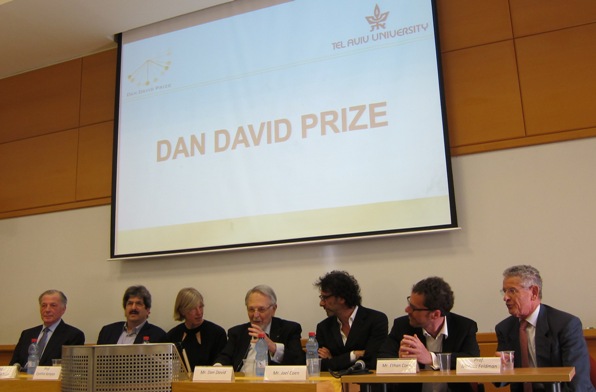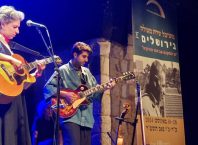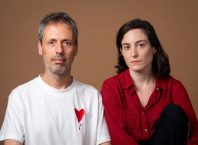
If you wear lipstick, you’re interested in science…or should be. If you are reading this article online, if you are breathing – science is a key element in understanding ourselves and the world.
It doesn’t mean everyone has to be an expert in every field. I am certainly not. This lack of expertise was deeply felt when I attended a press meeting with the recipients of the Dan David Prize: Prof. Marcus Feldman (Standford University), for his groundbreaking research in the domain of animal and plant evolution; Joel and Ethan Coen (USA), for their original and creative partnership unique in the history of filmmaking; Prof. Cynthia Kenyon (University of California, SF) and Prof. Gary Ruvkun (Harvard Medical School) for their research, which established that ageing is genetically regulated and that a hormone similar to human insulin is key to longevity.
Three scientists, two filmmakers and a room full of journalists – all (apparently) culture writers. It is likely there was not even a single science writer in the room. The reason is simple: most media sources do not have a dedicated science section or even full time science writers. Inevitably, most questions were asked of the Coen Brothers.
Midnight East was unabashedly there for the Coen Brothers too. In our defense, we’re a small magazine and do our best to cover those areas of culture that we feel qualified to discuss in writing – dance, theatre, film, the visual arts and music. Yet if one views culture as the complex network of elements interacting in a particular environment – be it a city, country or world-wide phenomena – science is an essential part of our culture. The research that scientists conduct has a profound influence on all our lives, whether the impact is immediately felt or not, whether or not we are aware. The cessation or limitation of research due to lack of funding, or lack of qualified scholars would have an even more significant impact on us all.
Sustaining a truly democratic society depends on the informed decision making of its members – how can we accomplish that without science, and without effective science communication?





